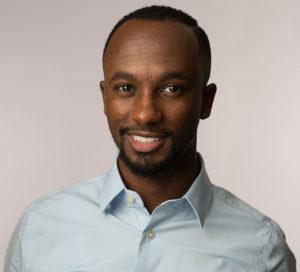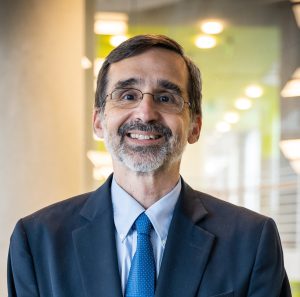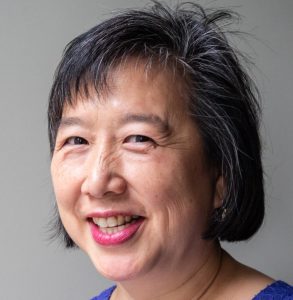By Christianna McCausland
When F. Scott Fitzgerald said there are no second acts in American lives, he hadn’t bet on the 21st century’s trend toward career fluidity. Nowadays, the average American employee is expected to change careers between three and seven times in their lifetime. Pew research recently showed that more than half of people who quit their job in 2021 changed their occupation. From those looking to repurpose their skills within a legal framework to those who simply want a fresh start, these students and alumni illustrate that it’s never too late to career shift.
From the high seas to the high court

Thomas Pulley, 27, is a long way from the Bering Sea, where his career story begins. Between his junior and senior year of college, a friend set him up with a job on the docks in a little town called Naknek, Alaska, for the salmon season. Pulley says, “The landscape was picturesque, the air was clear, and I had no cellphone service. It was incredibly refreshing to get off the grid.”
In fact, the native of New York state enjoyed it so much, he joined a commercial deep-sea fishing company in Seattle and was sent to work in the legendary Bering Sea. Onboard, his primary responsibility was stacking and sorting fish cases in a 50-foot freezer that could hold up to 850 tons of frozen fish.
“It was an incredible adventure I’ll never forget, but I couldn’t see myself making a career out of it long-term,” Pulley explains.
Instead, Pulley returned to school, where an adjunct professor at Western Connecticut State University and criminal defense attorney sparked his interest in legal studies. When he went looking for a program, “UB stood out to me as a school regarded highly for its public interest work and excellent set of clinics,” he says. “Plus, I love crab.”
Pulley will graduate in May 2025 and hopes to work in the public defender’s office in Maryland. He takes some good-natured ribbing from his former seafaring mates who hope to put his interest in criminal law to good use. “They bust my chops a bit and joke about how I’ll have a slew of clients after graduation.”
The human touch

People who know Eaujee Francisco, J.D. ’21, always had him pegged for law school, but he wanted to jump right into a career where he could put his passion for people to work. Prior to attending University of Baltimore, the 34-year-old worked as the human resources and payroll manager for Greenpeace USA. It was meaningful work, but he wanted to do even more.
“I applied to law school to pursue a career as an employment law attorney,” he explains. “I felt that obtaining legal training would allow me to more significantly advocate for employees and provide employers with more technical, risk-mitigating counsel. Additionally, my passion for people sparked an interest in family law while in law school.”
After graduation, Francisco clerked for The Hon. Shannon Avery in the Circuit Court for Baltimore City. After his clerkship, he worked as an associate at two Baltimore area law firms before founding his own firm, The Law Office of Eaujee Francisco, PLLC, in Cedar Hill, Tex. It is the only law firm in southwestern Dallas County specializing in family and employment law. He believes that coming to law school from a different career provided him with a deeper experience and an opportunity to be more engaged with the coursework than he would have been straight out of undergrad.
“Having work experience and a graduate degree before attending law school allowed me to contextualize my law school coursework much differently than the younger law students I knew,” he says. “Also, I wanted to enjoy my next career more than my previous one. I went into law school with very specific career goals to start my own practice.
“So, I approached every course with two questions in mind: How would this help my clients, and would I enjoy this practice area? … I took control of my law school experience and selected courses that focused on the application and practice of law.”
At law school he also learned the power of developing meaningful relationships, something that informs his daily work improving the lives of his clients each day. Francisco worked as a legal writing fellow at the law school’s Legal Writing Center, serving as head writing fellow in his 2L year. He was a Student Bar Association 1L representative and SBA secretary in his 3L year. He also worked in the law admissions office as a student assistant.
“If it weren’t for those meaningful connections, I would not have secured my judicial clerkship and first associate position,” Francisco says.

From research to advocacy
Joe Canner spent years applying his degree in computer science to medical research for institutions like Johns Hopkins and Yale universities. He’d reached the point in his career when people were asking if he was going to get a PhD in public health, but law school had always been something he’d considered — particularly after he worked for an FDA practice group at a law firm in Washington, D.C., as a regulatory affairs specialist. He’d taken a personal interest in racial justice and prisoner rights, and his own child was also looking at law school.
“I wanted to move from research to advocacy; to move from studying large groups of people in the abstract to impacting the everyday lives of actual people,” says Canner. “I was feeling like my medical research career was not very connected to reality, and there was no way to tell whether my work was making a difference. Civil rights, mass incarceration, prisoner rights—all of these things are significant and tangible problems for the people who experience them. I want to know that I am making a difference.”
When he opted out of the PhD in favor of a J.D., Canner chose UBalt Law because of its diversity and focus on civil rights issues. In a fun twist, his child was also accepted at UBalt Law, and the two are progressing through school together. “Although there is a wide age range of students in the UB evening program, I am still quite a bit older than most students,” says Canner, who is 59. His child introduced him to some of their friends, and he finds their youth and energy contagious.
“I’m really proud of both of us,” he adds, “for persevering to arrive at the finish line together.”
Perseverance is key, as Canner says law school is hard work and not for everyone. Still, he’s found reserves of energy and self-discipline he never knew he had. When he graduates in May 2024, he’ll take that energy to his clerkship for a judge on the Appellate Court of Maryland. Eventually he wants to work in civil rights, and perhaps even achieve his dream of arguing a case before the U.S. Supreme Court.
Cooking up a career change

For Janice Shih, J.D. ’14, law school was not so much a second act as a third. When she applied, she was working as a pastry chef at her own business, Tenzo Artisan, which specialized in gluten-free and allergy-free pastries. Prior to that, she was a physician. It was her work at Tenzo, she says, that inspired her to go to law school.
“I employed individuals who were returning to society from incarceration,” Shih explains. “This was my first introduction to the challenges that many low-income individuals face with the systems that were supposed to be helping them — so I came to law school to better assist them.”
At the time, her husband was supportive of this third act, but her best friend (who had attended law school) thought she was crazy. The step proved fortuitous, as Shih now works at UBalt Law running the Low-Income Taxpayer Clinic, where students work with real clients who have tax issues, work she did in her previous role at the Maryland Volunteer Lawyers Service.
Coming to law school as a more experienced adult, Shih brought her lived experience to her studies: having purchased a home, for example, she had a better take on property law than some of her younger peers. Today, Shih hopes that her diverse previous work experience gives her a broad understanding and the ability to make issues more relatable to her students.
Christianna McCausland is a writer based in Baltimore.
